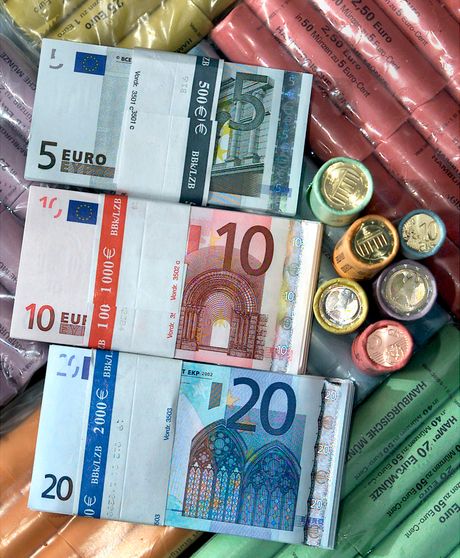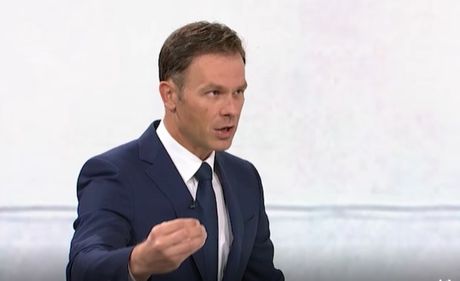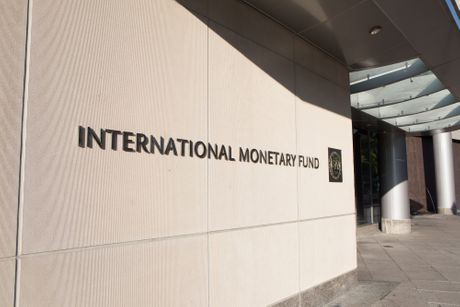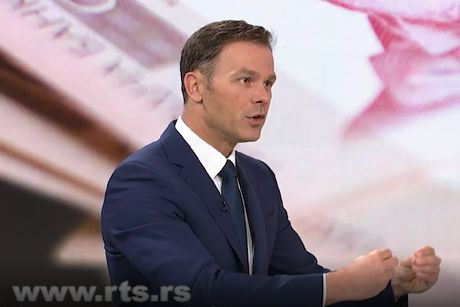Serbia's public debt is now 31.5 billion euros: About 53 percent of GDP

"The public debt is 31.5 billion euros, if you look at the absolute amount, we have no problem, we are paying back our obligations on time," Finance Minister Sinisa Mali has told RTS.
"When you relate our public debt to GDP, the share of public debt is about 53 percent, far below the Maastricht level of 60," Mali added.
He cited data for Greece where this figure is 193 percent, 118 percent in Spain, 113 percent in France, 103 percent in Montenegro, while the EU average is 90 percent.
"We are far from having any problems regarding the public debt," noted the minister.
He also recalled that in 2012, the total public debt was 17.7 billion euros, with GDP of 33.6 billion.
"At the end of the year, we will have the highest GDP ever, over 60 billion euros. Back in 2012, the average salary was 331 euros, now in June it was 633, GDP per inhabitant was 4,700 dollars then, today it is over 8,000 dollars. The unemployment rate then was 25.9, now it is 8.9 percent - historically the lowest," explaind Mali.
Also, the minister said that 2.6 billion euros have been invested in Serbia in the first eight months.
"That is why it's important for us to continue with the reforms, to show everyone that despite the crisis, the country proved to be stable, we assisted citizens with 100 euros, then the young people, the economy...," he added.

Standby arrangement with IMF
Mali announced that the IMF mission is coming to Serbia on October 20, and that continued cooperation will be discussed with them. The existing arrangement without any financial obligations expires in January 2023.
"It's natural, since we are satisfied with the cooperation, to see how we will cooperate further," the minister pointed out.
According to him, one of the possibilities is a standby arrangement with the IMF. This would give additional impetus to the continuation of reforms in Serbia and additional safety.
"At that moment, we could withdraw some funds from the IMF, much more favorably than we could on the capital market due to the whole global crisis. The global crisis requires that we have enough financial resources, that's why it's important that we got a loan of one billion dollars at three percent (interest rate) from the Emirates," explains Mali.

Serbia is far from recession
Mali pointed out that in the first quarter the growth rate was 4.3 percent, in the second 3.9 percent, which means that we are far from recession.
"We are fighting to provide enough gas, electricity, food, and the state has taken the burden of the crisis upon itself. We are stable and strong and today we have 2.5 billion euros in our cash account, we have liquidity," the minister stressed.
He said that this means we are ready for the coming winter, when it comes to money at least, while additional amounts of electricity should be provided. Previously, the price was 80 euros per megawatt, and now it is over 400 euros.
"There are enormous challenges before Serbia, but we are fighting to persevere. We are asking the citizens to save, the whole world is doing it, turn off a light bulb every day, that way we will spend less money on importing electricity," Mali said.

Pension increase in November
From November 1, pensions will be increased by 9 percent, and from January 1, there will be another increase of 12 percent.
"Starting January 1, pensioners will have over 20 percent higher pensions than during this year," stressed the minister.
When it comes to inflation, the average is 11.5 percent, while next year it is projected to drop to 8.7 percent.
"From January 1, there will be a 12.5 percent salary increase in the public sector," underlined Mali.
Video: Mali: At a time of the biggest economic crisis, Serbia is progressing the fastest
(Telegraf Biznis)
Video: Grad iznenadio ljude u Mačvi
Telegraf.rs zadržava sva prava nad sadržajem. Za preuzimanje sadržaja pogledajte uputstva na stranici Uslovi korišćenja.

